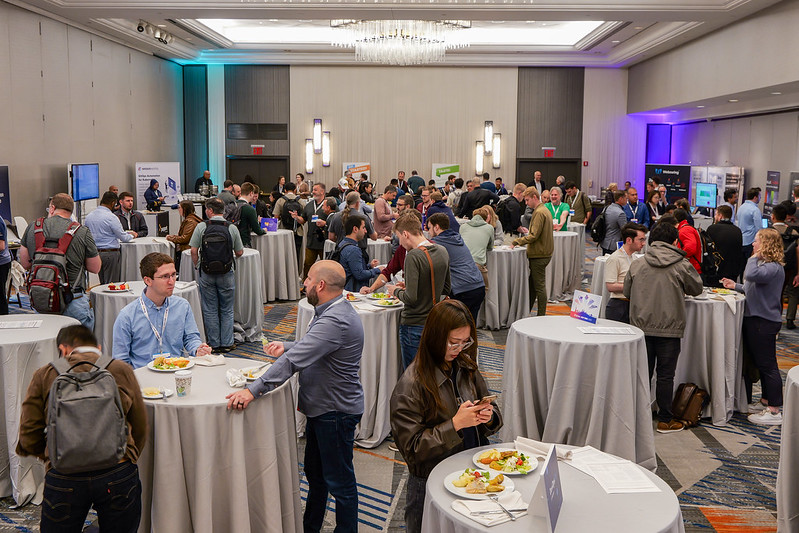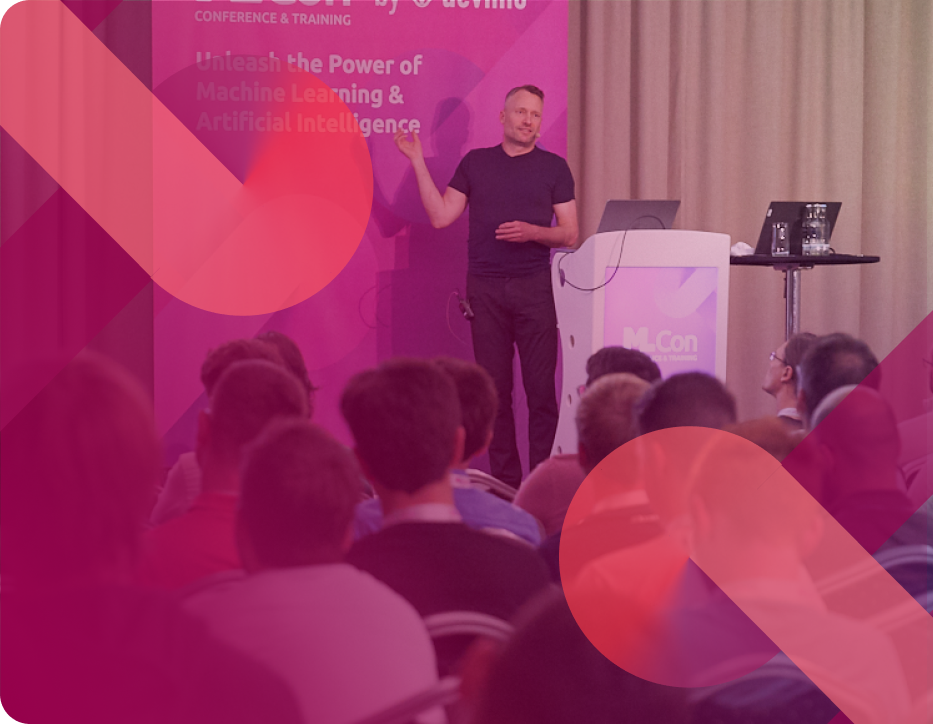Full-Stack AI Engineering in TypeScript Bootcamp
Park Plaza Victoria London or Online
May 14–15, 2026 (Thursday–Friday) | 9:00–17:00
May 14–15, 2026 (Thursday–Friday) | 9:00–17:00
EARLY BIRD SPECIAL ENDS IN:

Level Up with LLMs: Master AI agent development and scalable systems using TypeScript! Perfect for JavaScript and ML developers seeking advanced AI skills and hands-on training
Build Intelligent Agents with Confidence: Discover how to create production-ready AI systems using LLMs, RAG techniques, and advanced memory management
Start Your AI Journey: Learn to craft smart AI agents, integrate external data, and deploy scalable solutions with state-of-the-art LLM technology
Bootcamp Program Day 1
Introduction
Learn the fundamentals of Large Language Models (LLMs), decision-making pipelines, and context management
Hands-On
Set up your environment with TypeScript and Node.js, and practice crafting prompts, debugging, and troubleshooting AI systems
Enhance
Build smarter AI agents with memory, state management, and external data integration for richer, context-aware responses
Bootcamp Program Day 2
Performance
Master evaluations (Evals) and Retrieval-Augmented Generation (RAG) to optimize AI capabilities
Advanced AI Techniques
Learn structured output strategies, long-term memory management, and human-in-the-loop refinement methods
Deploying and Scaling
Explore best practices for deploying production-ready systems and integrating them seamlessly with applications
Participated in the Past
Meet The Mastermind

Nir Kaufman
Web developer. Community enthusiast. Organizer of meetups. International public speaker. Trainer. Author of books. Google developer expert in Angular and web technologies. Front-end Tech Lead at Tikal.
Technical Requirements
-
-
- Proficiency in TypeScript and JavaScript: A foundational understanding of TypeScript and JavaScript is essential for hands-on exercises and building AI systems
- Prepared Development Environment: Bring a laptop with Node.js installed, a modern code editor (such as VS Code or WebStorm), and a fully functional TypeScript setup configured prior to the workshop (like VS Code or WebStorm)
- Curiosity and Enthusiasm for AI: A genuine interest in learning about LLMs, engaging with hands-on exercises, and exploring cutting-edge AI technologies.
-
Who Should Attend?
-
-
- AI Developers and Engineers: Professionals focused on creating intelligent systems powered by LLMs, eager to deepen their expertise in building and scaling AI agents
- Software Developers: Programmers seeking to transition into AI, learning to expand their skills with LLMs and scalable systems for real-world applications
- Machine Learning Experts: Practitioners looking to enhance their ML workflows by integrating LLM-powered intelligent agents and cutting-edge AI methodologies
- Full-Stack and Backend Developers: Engineers interested in enriching applications with advanced AI capabilities, including memory management, RAG, and scalable architectures
-
Why Should You Attend?
After completing this intensive workshop, you’ll be equipped to:
-
-
- Design and Build Intelligent AI Agents: Confidently create AI agents that use LLMs and TypeScript for decision-making, memory retention, and real-time context management
- Optimize AI Systems for Performance and Scalability: Apply techniques like Evals and RAG to improve the efficiency, accuracy, and reliability of your AI solutions
- Integrate External Data Seamlessly: Enhance your AI agents by incorporating APIs and knowledge bases with TypeScript for richer and more context-aware responses
- Deploy Production-Ready AI Systems: Transition from prototypes to fully functional, scalable AI applications ready for real-world deployment
- Create Advanced Prompts for Tailored Outputs: Master prompt engineering to generate precise, creative, and impactful AI responses aligned with user needs
-
Agenda Day 2
- Apply DSRP systems thinking to refine your maps and reveal hidden dependencies.
- Build a 3-axis flow map combining user needs, value streams, and systems perspectives.
- Design your future platform state through small, high-impact capability increments and safe-to-fail experiments.
- Build an impact-based roadmap focusing on value, risk, sequencing, and communication.
- Develop adoption and influence strategies: behaviour change, internal messaging, and developer engagement.
- Explore platform futures—AI, automation loops, resilience patterns—and complete your final synthesis.
Secure Your On-Site Spot
STAY TUNED &
Learn more about MLCON:
DON'T MISS ANY ML CONFERENCE NEWS!
Become part of the Machine Learning Revolution!
Unlock Exclusive Discounts & Free Recordings Today

Register for a free devmio Fullstack membership to secure:
 6 months access to session recordings.
6 months access to session recordings.
 $100 discounts on MLcon New York tickets.
$100 discounts on MLcon New York tickets.
 1 year unlimited access to devmio - the conference platform.
1 year unlimited access to devmio - the conference platform.
Sign Up today and get a taste of MLcon New York! Free for a limited time.
DON'T MISS ANY ML CONFERENCE NEWS!
Become part of the Machine Learning Revolution!
DON'T MISS ANY ML CONFERENCE NEWS!
Become part of the Machine Learning Revolution!
DON'T MISS ANY ML CONFERENCE NEWS!
Become part of the Machine Learning Revolution!
Hoi Amsterdam - We Are Coming Soon!
Join Our Community to stay ahead with the latest trends, whitepapers, webinars and Early Bird Offers.

DON'T MISS ANY ML CONFERENCE NEWS!
Become part of the Machine Learning Revolution!